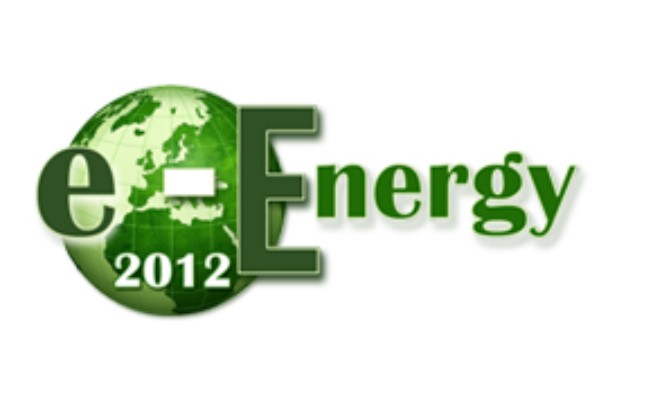IMDEA Networks

Institute IMDEA Networks Announces International e-Energy 2012 Conference
30 January 2012

e-Energy 2012, to be held in May in Madrid, Spain, will focus on areas such as servers and communications infrastructures, data centers, cloud computing and smart grids
As concerns around energy production and consumption grow due to issues such as climate change and the greenhouse effect, Information and Communications Technology (ICT) has a role to play in introducing energy efficiency in everyday life, as well as optimizing the production, transportation and consumption of energy in many areas. But ICT infrastructure must also itself become more energy-efficient, and with that goal in mind, Institute IMDEA Networks and University Carlos III Madrid (UC3M) announce e-Energy 2012, the third International Conference on Future Energy Systems, which will bring together researchers, developers and practitioners working in the fields of energy, computing and communications to discuss recent research and identify future directions and major R&D challenges. The conference will address areas such as servers and communications infrastructures, services in data centers, end-systems in home and office environments, broadband access networks, sensor networks, cloud computing, smart grids and future networks such as The Internet of Things. With backers including the Association for Computing Machinery (ACM) and the Institute of Electrical and Electronics Engineers (IEEE), e-Energy 2012 aims to become a scientific forum of reference in the development of green communications and computing technologies.
The conference, organized by Institute IMDEA Networks and UC3M, will take place from May 9 to May 11, 2012 in Madrid, Spain, following on from previous events held in April 2010 in Passau, Germany, and in May-June 2011 at Columbia University in New York City. The main conference will be preceded on May 8th by E2DC, the 1st International Workshop on Energy-Efficient Data Centres, and a meeting of the COST Action IC0804 on Energy Efficiency in Large Scale Distributed Systems. The Call for Papers for the upcoming event closed January 27 with a significant number of papers submitted. Some of the issues covered will include instrumentation and measurement of energy-efficient computing and networking; energy and performance profiling; metrics, benchmarks, interfaces and tools; monitoring and management concepts; energy-efficient networking and protocols; energy-efficient wired and wireless access networks; cloud computing; peer-to-peer networking and overlays; smart grids; sensing techniques and sensor networks for energy awareness; energy-efficient network equipment including switches, routers and transceivers; security challenges in energy-efficient computing and networking; and future energy-efficient architectures.
The e-Energy 2012 conference builds Institute IMDEA Networks’ ongoing research in the field of energy efficiency, including research aimed at creating more energy-efficient computing and communications systems as well as designing ICT systems that improve energy production and distribution in other areas. This research includes the development of new algorithms that adapt networking infrastructure to the variations of traffic demand over time, as well as the creation of protocols and algorithms specifically adapted for smart energy management systems such as Smart Grids. One of the Institute’s ongoing research projects is Green Network, carried out in partnership with institutions in Spain, the United States and China and focusing on theories and techniques for globally reducing energy consumption at the network level. Dr. Marco Ajmone Marsan, a Chief Researcher at the Institute, is also General Conference Co-Chair for e-Energy, and Project Coordinator of TREND (Towards Real Energy-Efficient Network Design), a European Network of Excellence on Energy Efficient Networking, which is one of the e-Energy Conference’s sponsors. TREND brings together major players in European networking, including manufacturers, operators and research centers, around the design of energy-efficient, scalable and sustainable future networks. IMDEA Networks commenced work at the start of the year in another project related to this area of research: Energy Efficient Networks. The project’s main objective is the design of algorithms and techniques to reduce the energy consumption of communication systems without significantly affecting the service quality.
Read more:



Recent Comments